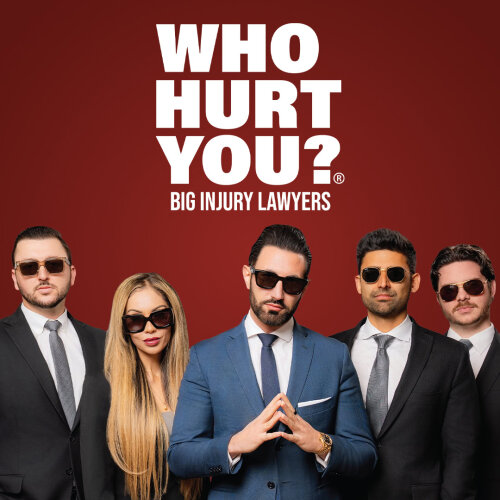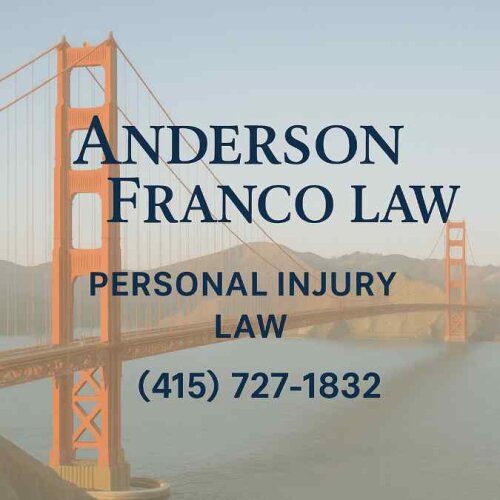Best Defamation Lawyers in California
Share your needs with us, get contacted by law firms.
Free. Takes 2 min.
Or refine your search by selecting a city:
List of the best lawyers in California, United States
About Defamation Law in California, United States
Defamation is a legal term that refers to statements made publicly that damage the reputation of an individual or a business. In California, defamation can be broken down into two categories: libel, which refers to written statements, and slander, which refers to spoken statements. To prove defamation, the false statement must be published or communicated to a third party, and it must cause actual harm to the reputation of the person or entity being defamed. California's laws are designed to balance the constitutional right to free speech with the right to protect one's reputation.
Why You May Need a Lawyer
Defamation cases are often complex and can have serious consequences. You may consider seeking legal assistance if:
- You believe someone has made false statements about you or your business that have harmed your reputation.
- You are being accused of making defamatory statements and want to defend yourself.
- You need to understand your rights in the context of free speech versus defamation protections.
- You are a journalist, blogger, or social media user concerned about potential liability for statements made online.
- You are a business owner whose business is suffering due to false reviews or comments.
Local Laws Overview
California has some unique aspects to its defamation laws:
- Actual Malice Standard: If the person allegedly defamed is a public figure or public official, they must prove the statement was made with "actual malice," meaning the person who made it knew it was false or acted with reckless disregard for the truth.
- Statute of Limitations: In California, you generally have one year from the date the defamatory statement was made to file a lawsuit.
- Anti-SLAPP Law: California law allows for early dismissal of lawsuits that are intended to chill the valid exercise of free speech. If you are sued for defamation, you may file an anti-SLAPP motion if the suit targets protected speech.
- Opinion vs. Fact: Statements of opinion are generally not considered defamatory; only false statements of fact qualify.
- Privileges: California recognizes certain privileges that may protect statements, such as those made in court or by government officials as part of their duties.
Frequently Asked Questions
What qualifies as defamation in California?
To qualify as defamation, a statement must be false, made to a third party, unprivileged, and cause harm to the subject's reputation.
What is the difference between libel and slander?
Libel refers to defamation that occurs in written or otherwise permanent form, while slander refers to spoken defamation.
Can I sue someone for posting something negative about me online?
You may be able to sue if the statement is false, not a protected opinion, and has caused measurable harm to your reputation.
How long do I have to file a defamation lawsuit in California?
The statute of limitations is one year from the date the defamatory statement was published or made.
What damages can I recover in a defamation lawsuit?
You may recover damages for loss of reputation, emotional distress, and financial losses. In some cases, punitive damages may also apply.
What is an anti-SLAPP motion?
An anti-SLAPP motion is a legal tool used to quickly dismiss lawsuits that are intended to restrain free speech on a matter of public concern.
Are statements of opinion ever considered defamatory?
Generally, opinions are protected and not considered defamatory, unless they imply false, provable facts.
Is it defamation if the statement was made in court?
Statements made in a court proceeding are usually protected by absolute privilege and cannot form the basis of a defamation lawsuit.
Can a business sue for defamation?
Yes, businesses can bring defamation claims if false statements have harmed their reputation or caused loss of income.
What defenses are available in a defamation case?
Common defenses include truth, privilege, opinion, lack of actual malice, and lack of damages.
Additional Resources
- California Courts Self-Help Center - Offers information on civil suits and small claims, including defamation.
- California Department of Consumer Affairs - Provides resources and mediation services.
- American Civil Liberties Union of Northern California - Offers guidance on free speech and defamation issues.
- State Bar of California - Helps you find qualified attorneys for defamation matters and offers general legal guidance.
Next Steps
If you believe you are involved in a defamation matter, it is important to act quickly, as waiting may affect your ability to bring a claim. Consider the following steps:
- Gather all evidence of the alleged defamatory statement, including dates, locations, witnesses, and any documentation.
- Assess the harm caused to your reputation or business, including lost income, emotional distress, or other damages.
- Consult with a qualified California attorney experienced in defamation law for specific legal advice and to discuss the merits of your case.
- If accused of defamation, avoid further public statements and seek legal help before responding or taking further action.
- Review online resources and use legal aid services if you cannot afford private legal representation.
Taking these steps can help protect your rights and ensure you pursue the best possible outcome for your situation.
Lawzana helps you find the best lawyers and law firms in California through a curated and pre-screened list of qualified legal professionals. Our platform offers rankings and detailed profiles of attorneys and law firms, allowing you to compare based on practice areas, including Defamation, experience, and client feedback.
Each profile includes a description of the firm's areas of practice, client reviews, team members and partners, year of establishment, spoken languages, office locations, contact information, social media presence, and any published articles or resources. Most firms on our platform speak English and are experienced in both local and international legal matters.
Get a quote from top-rated law firms in California, United States — quickly, securely, and without unnecessary hassle.
Disclaimer:
The information provided on this page is for general informational purposes only and does not constitute legal advice. While we strive to ensure the accuracy and relevance of the content, legal information may change over time, and interpretations of the law can vary. You should always consult with a qualified legal professional for advice specific to your situation.
We disclaim all liability for actions taken or not taken based on the content of this page. If you believe any information is incorrect or outdated, please contact us, and we will review and update it where appropriate.
Browse defamation law firms by city in California
Refine your search by selecting a city.















